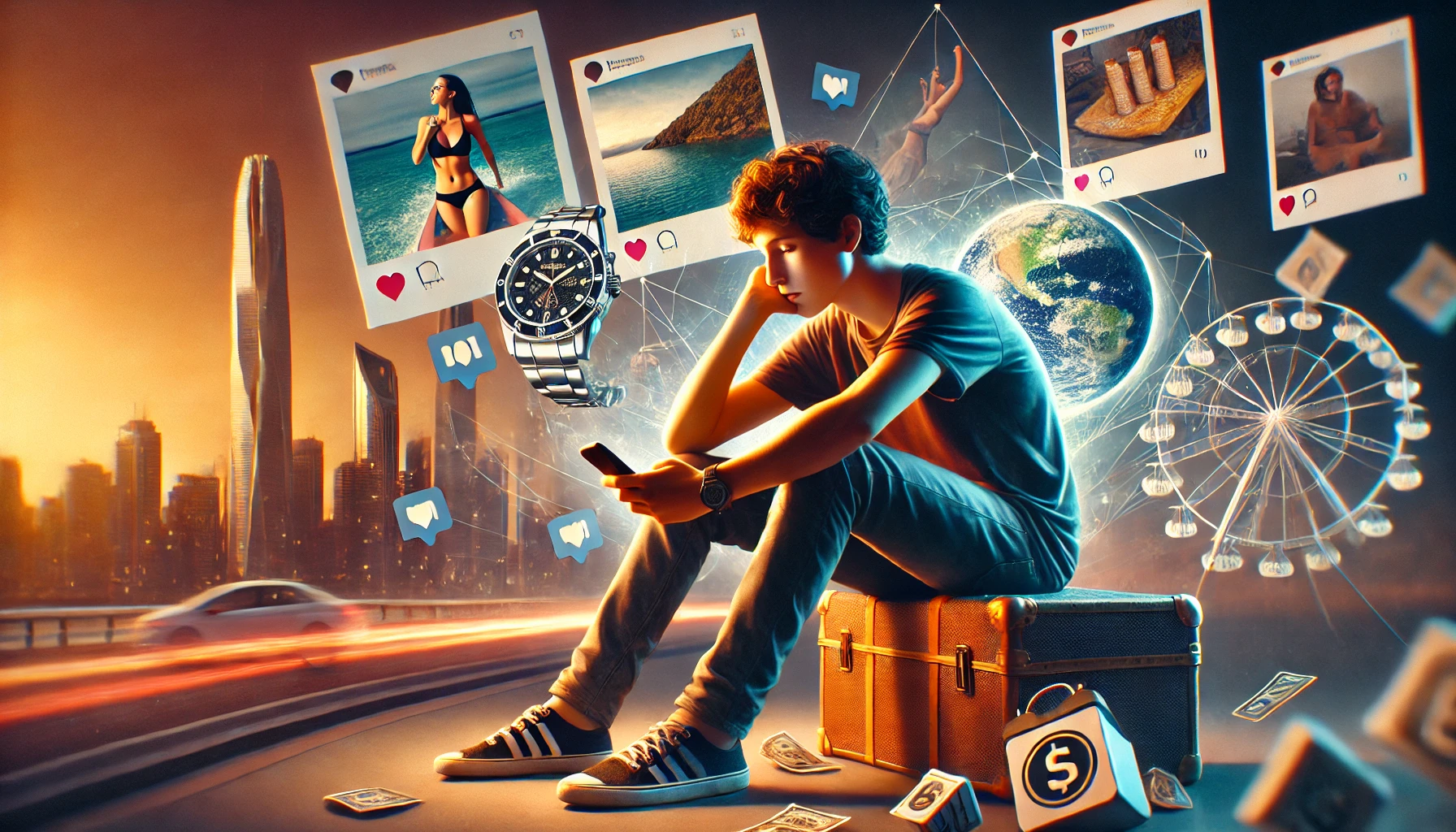Social media is a big part of our daily lives, offering entertainment, connections with friends, and access to information. However, excessive use and constant exposure to idealized content can negatively impact self-esteem without us even realizing it. In this article, we’ll explore how this happens and what to do to maintain a healthy relationship with the digital world.
1. Constant Comparison and Its Effects
On social media, it’s common to see pictures of amazing trips, perfect bodies, and seemingly problem-free lives. This constant exposure to carefully curated content can create unrealistic standards and make us feel inadequate.
- “Highlight Reel” vs. Reality: People usually share their best moments, not their struggles. Comparing your everyday life to someone’s highlights can make you feel like your life is less exciting.
- Filters and Photo Editing: Many images are edited to remove imperfections, creating unrealistic beauty standards.
- The Pressure to Keep Up: Seeing others achieving milestones (such as buying a house, traveling, or getting promoted) can create anxiety and a sense of failure.
2. The Dopamine Loop: Why Social Media Feels Addictive
Social media platforms are designed to keep us engaged. Every like, comment, and notification releases dopamine, a neurotransmitter linked to pleasure and reward. This can lead to:
- Seeking validation through likes and comments: When a post doesn’t get enough engagement, it can make people feel rejected or unimportant.
- Spending more time online than intended: Scrolling endlessly can make it harder to focus on real-life activities.
- Feeling anxious when disconnected: Fear of missing out (FOMO) can cause stress and pressure to be constantly online.
3. Unrealistic Beauty and Lifestyle Standards
Influencers and celebrities often set unattainable beauty and lifestyle standards. Even though many of these images are altered, people subconsciously compare themselves to them, leading to:
- Body dissatisfaction: Constant exposure to unrealistic body types can create negative self-perception.
- Lower self-worth: Feeling like you’re not good enough because you don’t look or live like influencers.
- Unrealistic expectations: Thinking happiness depends on material things or physical appearance.
4. How to Build a Healthy Relationship with Social Media
To prevent social media from harming your self-esteem, try these strategies:
- Limit screen time: Set specific times to check social media instead of constantly scrolling.
- Follow positive and realistic accounts: Unfollow pages that make you feel bad about yourself and follow those that promote self-love and real-life experiences.
- Be mindful of edited content: Remember that most photos and videos are curated, filtered, or edited.
- Practice self-acceptance: Remind yourself that you are valuable just as you are, beyond online validation.
- Take social media breaks: A detox from social media, even for a short time, can help improve self-esteem and mental health.
Conclusion: Social Media Is a Tool—Use It Wisely
Social media itself isn’t harmful, but how we use it can influence our self-esteem and mental well-being. The key is to stay aware of its effects, avoid unhealthy comparisons, and focus on real-life connections. By doing this, you can enjoy the benefits of social media without letting it negatively impact your confidence and self-worth.
